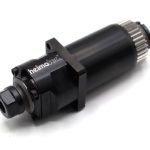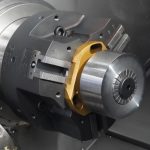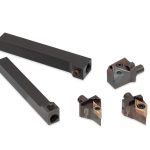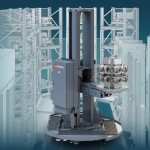CUT S 400 Dedicated
CUT S 400 Dedicated
For faster, easier cleaning, the casting of the CUT 400 S Dedicated is designed so that tank water constantly runs down the interior sides of the work envelope, keeping them wet and preventing EDM residue from drying and hardening. This sticky residue also plays havoc with an EDM's filter and drive systems. To prevent the residue from making its way inside these systems, water also constantly circulates through the new machine's upper and lower heads.
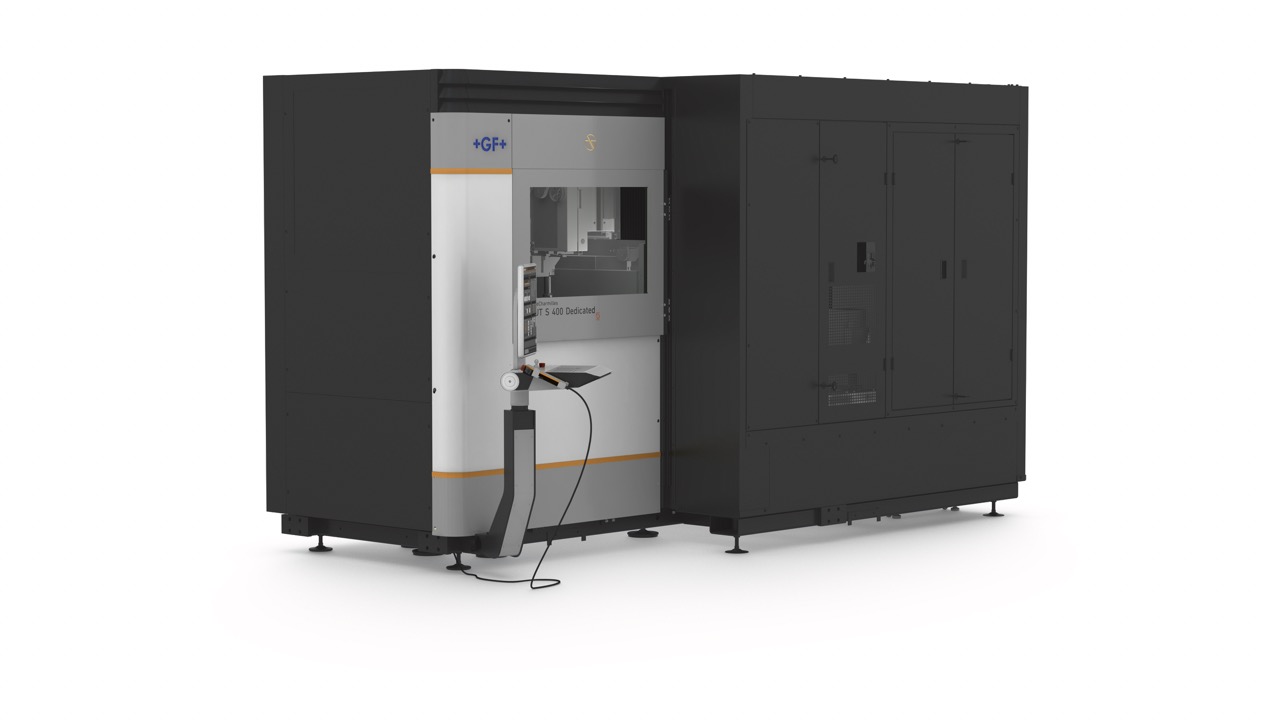
With the goals of increased flexibility and reduced maintenance in mind, GF Machining Solutions developed its next generation CUT S 400 Dedicated wire electrical discharge machine (EDM) that improves the overall production of aerospace jet engine turbine disks, in particular for cutting their fir tree blade patterns. With advanced features and capabilities, the new machine allows manufacturers to cut a wider range of turbine blade diameters and do so with fewer production interruptions due to typical EDM setup and maintenance issues.
While dedicated is in its name, the CUT S 400 Dedicated gives manufacturers the flexibility to create the complete range of popular jet aircraft engine disk diameter sizes with one machine. Geared toward those disks made from nickel-based or waspaloy alloys used in the "hot" critical side or the "cold" non-critical side of an engine, the new wire EDM handles disks measuring from 160 mm up to 680 mm in diameter.
The machine can accommodate this wide range of disk sizes thanks to its new, more robust rotary/tilt axis that easily manages heavier part loads without risk of deflection. A new additive manufactured smaller lower head nozzle size also provides additional room for smaller disk diameters while allowing for the use of various types of wire and wire guide diameters.
According to Eric Ostini, Manager of Business Development at GF Machining Solutions, the aerospace industry continues to design and develop jet engine disks, but there remain legacy engines still requiring replacement parts. "With that said, the CUT S 400 Dedicated increases the range capability for supporting not only existing disk designs but also for those older ones still in use," he said.
Besides increased part size flexibility, many of the machine's new technological advancements make required maintenance easier and less frequent, which in turn, reduces the amount and duration of non-cut time and helps lower cost per part. These advancements are evident in the machine's casting, tank design and filtration system that help combat problems caused by EDM particles/residue generated by long hours of disk production cutting.
For faster, easier cleaning, the casting of the CUT 400 S Dedicated is designed so that tank water constantly runs down the interior sides of the work envelope, keeping them wet and preventing EDM residue from drying and hardening. This sticky residue also plays havoc with an EDM's filter and drive systems. To prevent the residue from making its way inside these systems, water also constantly circulates through the new machine's upper and lower heads.
Not only does the machine's tank always remain wet, it also has no sharp corners within its interior. Instead, GF Machining Solutions radiused all the corners to eliminate crevices that make residue cleaning difficult. While cleaning these crevices there is also an increased risk of damaging the interior panels. Additionally, the tank is designed to channel water flow with EDM residue directly to the bottom of the tank, helping prevent residue from being dispersed throughout the work envelope.
To streamline machine filter maintenance, GF Machining Solutions increased the capacity and number of filters on the CUT S 400 Dedicated. They also incorporated quick releases along with an air purge system that removes water from the filters to reduce their weight, making them easier and quicker to remove. Along with filter enhancements, the machine's pumps are readily accessible and do not need to be removed for cleaning.
Also featured on the CUT S 400 Dedicated is the GF Machining Solutions Intelligent Spark Protection System (ISPS), which is part of the recently released Uniqua control. This system makes it possible to not only recognize exactly where the sparks of a wire EDM are happening during the process, they can also measure and identify the position of each spark along the length of an EDM's wire.
Knowing the exact location of a spark allows the system to automatically adapt to prevent wire breakage, especially beneficial during long cuts and unattended operations, and contributes to the reduction of surface integrity issues.


